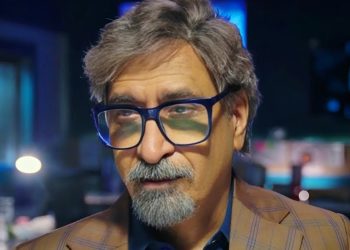Christmas is celebrated on December 25 and is both a sacred religious holiday and a worldwide cultural and commercial phenomenon. For two millennia, people around the world have been observing it with religious traditions and practices.
Christians celebrate Christmas Day as the anniversary of the birth of Jesus of Nazareth. Many attend church services on Christmas Eve and Christmas morning and later gather for Christmas dinner with extended family.
The name ‘Christmas’ comes from the Mass of Christ (or Jesus). A Mass service is where Christians remember that Jesus died for us and then came back to life. Let’s take an in-depth review of why the Christian celebrates Christmas, and what are the other concepts in this regard.
The Date of Christmas
The precise origin of assigning December 25 as the birth date of Jesus is unclear. December 25 was first identified as the date of Jesus’ birth by Sextus Julius Africanus in 221 and later became the universally accepted date.
One widespread explanation of the origin of this date is that December 25 was the Christianizing of the dies solis invicti nati (day of the birth of the unconquered sun), a popular holiday in the Roman Empire that celebrated the winter solstice as a symbol of the resurgence of the sun, the casting away of winter and the heralding of the rebirth of spring and summer.
It was Emperor Constantine — known as the first Christian Roman emperor — who declared December 25 as ‘Christmas’ and a day to celebrate Christ. A few years later, Pope Julius I declared that the day would mark the birth of Christ.
4TH CENTURY — 17TH CENTURY
All of that changed in the 4th century when Pope Julius I selected December 25 as the official date when Christians would celebrate the birth of Jesus. By 432, Christmas had spread to Egypt, and by the Middle Ages, the practice of celebrating Christmas had spread around the globe and replaced pagan festivities. Christ’s birth was celebrated on December 25, and January 6 became the date that people marked the Feast of the Epiphany, commemorating when the wise men arrived in Bethlehem and found Jesus in the manger.
Celebrations
Christmas, as celebrated now, is quite a modern interpretation of the ancient pagan celebrations. Currently, it is heavily centered around the mythical figure of Santa Claus. Also known as, Kris Kringle, Santa Claus is the traditional patron of Christmas in the United States and other countries.
His popular image is based on the traditions associated with Saint Nicholas, a 4th Century Saint. Santa is rumoured to live on the North Pole, along with his many helper elves. According to the belief, he rides on his sleigh from the North Pole, giving gifts to children all around the world on Christmas eve.
The exchanging of gifts, decorating the house in twinkling lights and ornaments, cooking a grand meal, all are modern traditions surrounding the celebration of Christmas. The festival marks the close of the year and symbolises all things heart-warming and jolly, as it is a time when people all over the world visit their families and spend time together.
Religious freedom in Pakistan
The Christian community in Pakistan celebrates Christmas with complete freedom. Christians are present in large numbers in Pakistan and have full religious freedom as per the constitution.
Strict security measures are taken to ensure safety of the Christian community and forces had been deployed outside churches to thwart any untoward incident.





































